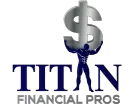What Is The Definition Of Asset Management?
Many of you have probably heard the term “asset management” Before, but you may not have an idea of what it really is. Asset management is a broad term. It can be defined as a process that guides the gaining of assets, along with their use and disposal in order to make the most of the assets and their potential throughout the life of the assets. While doing this, it also manages and maintains any costs and risks associated with the assets. It is not something you can buy, but rather a discipline you must follow in order to maintain your assets.
Asset Management can be used for a variety of things. Most use asset management to keep track of their cash or “liquid assets.” Banking institutions are considered a form of asset management (savings accounts, CD’s, mutual funds, money market accounts, etc.) along with investments. Another example of assets: businesses often have a product to sell. These products are considered assets. The right asset management system can be utilized to make the product more readily available, easier to produce, cheaper to ship to customers, etc.
Asset Management Resource:
Tracking and insuring the product is also a way of asset management. The product is an asset to the business and essential for its survival and for financial stability. So, maintaining and managing this product is of the up most importance.
There is another type of asset that many people do not think of when they think of the term “asset management.” This asset has to do with public and shared assets such as: the building and maintaining of streets, highways, water treatment facilities, sewage, electricity, natural gas, clean air, etc. All of these are assets that everyone on this earth needs. Usually, your city or local government uses asset management to maintain the cost of these assets.
They also use it to produce some of these assets more effectively and in a more cost efficient manner. Natural resources such as: water, electricity, and natural gas are managed so that they can be renewed constantly and thus available inexpensively.
Asset Management Resource:
There are many different means of asset management. It often depends on what type of asset is involved. There are companies and software products available to assist in asset management. Whatever method you choose, there are many similar things that your asset manager system should entail:
1. Optimize asset use and manage all maintenance efforts involved by
making assets as accurate, reliable, and efficient as possible.
2. Reducing the demand for new assets and thus save money by using demand management techniques and maintaining current assets.
3. Uses a form of asset tracking: knowing where the asset is at all times, how much the asset is worth, and how much the asset cost you to begin with. It should also incorporate this throughout the entire life of the asset.
4. Always tries to achieve greater value for money through evaluating the asset options: the cost of maintaining, producing, the use of it, etc.
5. Always provides a report on the value of the assets, along with any costs involved in maintaining the assets.
Hopefully you now have a better understanding of the many forms of asset management. There are so many different things that can be defined as assets, thus there are so many different means of asset management. Now that you understand it a bit, you can decide what your assets are and how you can maintain them better in order for them to be more advantageous for you!
These are just some tips about the definition of asset management that you might not have known. Hopefully you found these helpful. If you would like to learn even more about how you can increase the bottom line of your own business, then you are more than welcome to contact us and we will take a look at your unique situation and offer some sensible solutions that would work best for you!
“TITAN Financial Pros provide an informational service only and are not responsible for any investments made applying this information. The results described are not distinctive and are not guarantees of future income. Any assumption contains risk and is 100% the responsibility of the individual to assess the risks/rewards involved. We bear no liability assumed or implied for your application of the information shared from this content. This information is for educational and entertainment purposes only.”
Is your business losing money?
Click the button below to get our FREE report on the 5 Most Common Ways Businesses Lose Money and more importantly,
HOW YOU CAN FIX THEM!



